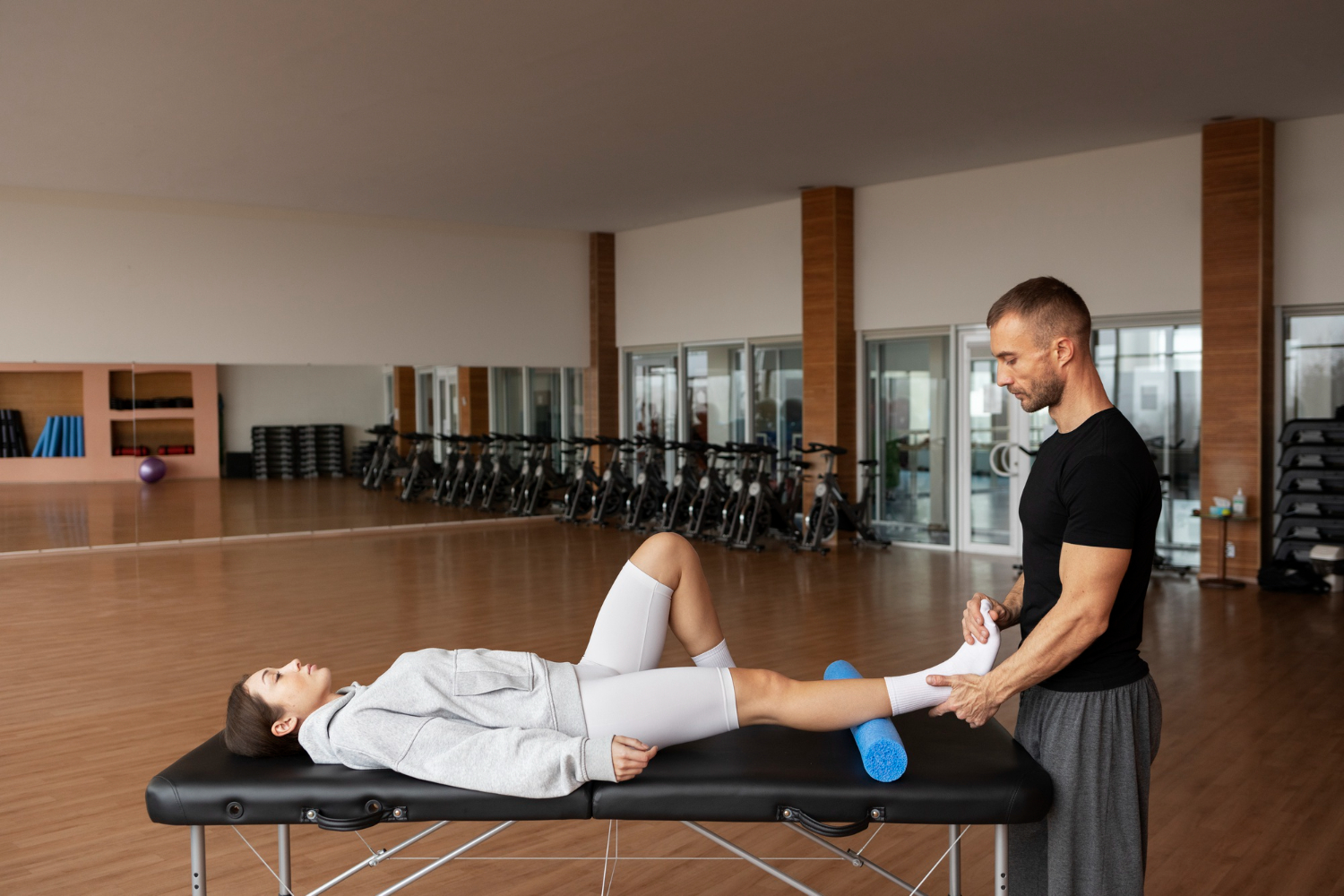Physiotherapy vs. Rest: What’s Better for Injury Recovery?
28 Jul, 2025 | By Unifying Expo
You sprained your ankle playing
badminton, or maybe you tweaked your back while lifting a suitcase. In both
cases, the pain kicks in, and so does the classic question: Should I rest or
see a physiotherapist?
If you think rest is the safe
option, or we can say a natural choice for people who think that it's all they
can do, then let me tell you, sometimes you need more than that. Its not
possible for everyone to wait for weeks to get well missing all the important
appointments, office work, meetings, and other necessary commitments. So, if you
want healing and at the same moment you can sit back and relax for weeks to let
the body heal through a natural process, it's time that you look for a good
physiotherapist.
Now, the point is, why does choosing physiotherapy need to be your priority after the injury? Why can’t we trust
the natural healing power of our body? In order to get the right answer to
these queries, we need to go in-depth and explain the battle between these two
choices and, of course, find the winner.
Rest: Friend or Foe?
There is no doubt that rest has
its moment in the spotlight, which is usually in the first few days after you
are injured. The rest comes as a natural option, which means hitting a pause
button for a moment because it gives your body enough time to assess the
damage, take care of the inflammation, and check out the pain signals.
However, there is a catch, i.e.,
we cannot count rest as a long-term strategy to get well soon. The reason is
that if your joint is inactive or you have injured a muscle, leaving it
untreated for a long time will start to weaken it, resulting in a stiff body.
You keep your body at rest, and before you think you are recovering, you will
start feeling hesitant to move, which means you are not healed. You may have
seen people saying that they hurt their elbow a year ago, and it is still
causing pain and movement issues. It is most probably because they rested for too
long a period and made no necessary movements.
Enter Physiotherapy: Active
Healing
Physiotherapy is just like having
a good coach for your recovery process. The main reason experts suggest
physiotherapy is that they know that if you want to return to your former self and get fit for activities like running, lifting, and twisting, only a physiotherapist
can help you. That’s why the professional athletes do not just rest, but they
rehab which means they work with the best physiotherapists to heal properly and
return with a much stronger body.
On the other hand, you do not
have to think that physiotherapy is just for the athletes, it's the same for
the teenagers, senior citizens, and adults who are suffering with carpal tunnel
or have slipped on stairs or feel intense pain in their upper as well as lower
back.
What does a physio do that
rest cannot?
- Finds out the actual cause of the injury, not just
the symptom
- Uses hands-on techniques to improve mobility and
reduce tension
- Prescribes exercises that rebuild strength and
confidence in movement
- Guides you through a structured return to a normal
routine
Real Talk: When Should You
Rest?
Now, it’s time to have a fair
talk about both because it’s not that rest is completely useless and
physiotherapy is a must in all the cases, but there are conditions. When you
get injured, like if you have twisted your ankle or knee, the first thing to do is
to take some rest and use an ice pack. However, you do not have to take rest for
long because what you are doing as your damage control can do more damage
later. So, let it take some time, and then you will need a physiotherapist to
take control and guide you on how to heal properly and achieve good relief.
Blending Both: The Real Magic
Well, if you want to make a
smarter choice, it's better to blend these.
- Day 1–3: Rest is king. Let your body settle.
- Day 4 onward (depending on injury): Bring in
physiotherapy. Gently. Progressively. With intent.
Final Thoughts: Recovery Is an
Active Process
In the end, we must say that
recovery is a journey that every person has to endure because shortcuts do not
help. You need time to rest and then start your journey of healing your body on
time so that you can get back to your same position as soon as possible. Yes,
we are talking about the real healing where you have to participate without any
delay and give your body a moment to breathe and heal.
So, if you are nursing an injury
at the moment, it's time that you ask yourself what you want; feel a little
better with rest or bounce back with a better and stronger body? It’s you who
has to decide this!